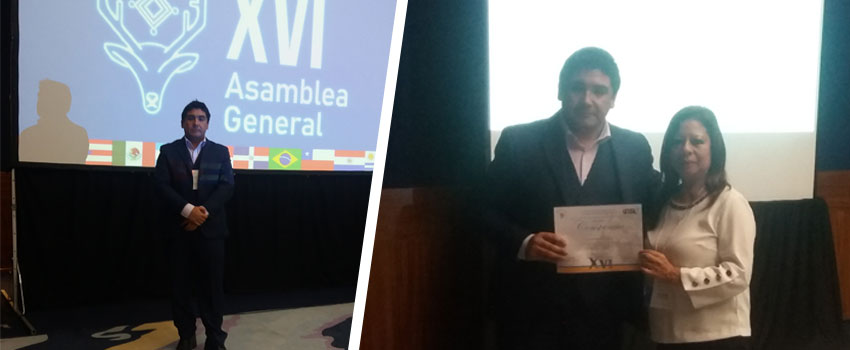- News
“Accompany-Art”: PACE ULS Participatory Project showed students the reality after fourth semester
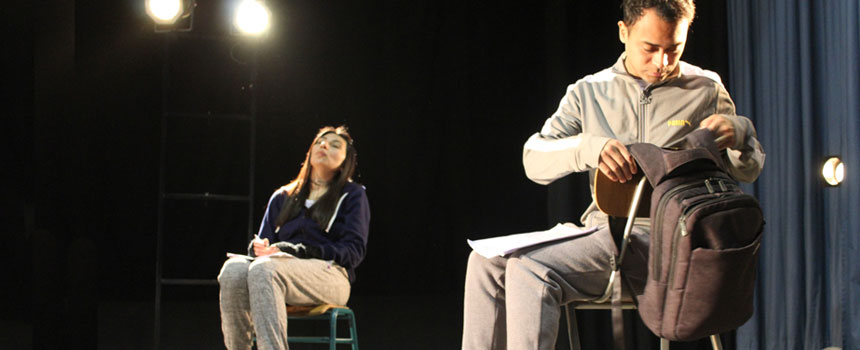
Male and female students from the different educational establishments assigned to the Program enjoyed the play “A Sea of Questions”, created exclusively for the event by Teatro ECO.
The PACE Program of the University of La Serena, within the framework of its line of work on Secondary Education Preparation (PEM), carried out a play and discussion to share experiences about the process of choosing post-secondary trajectories with more than nine hundred and seventy students accompanied by the Program.
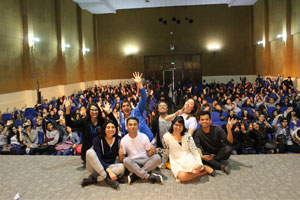 The activity was born in order to show the daily reality that the vast majority of adolescents experience when moving from secondary school to higher education, which is why the PACE ULS Program team made the decision to create a work of theater that will reflect this experience to the students attending the ULS Expo, channeled through the line of Participatory Projects of the Accompaniment in Higher Education (AES) area.
The activity was born in order to show the daily reality that the vast majority of adolescents experience when moving from secondary school to higher education, which is why the PACE ULS Program team made the decision to create a work of theater that will reflect this experience to the students attending the ULS Expo, channeled through the line of Participatory Projects of the Accompaniment in Higher Education (AES) area.
The psychosocial manager of the Program, Barbará Mejías, expressed that “regarding the experiences in the first years of university, and as a result of the reflection in psychoeducational development workshops carried out by the AES area during the 2017 period, the students of the cohort 2017 PACE ULS show the importance of support during the third and fourth year period and how at that time it is crucial to visualize all the possibilities of post-secondary trajectories. They remember their emotional feelings during the period prior to choosing their career, the fears, doubts, dreams and uncertainties that they experienced during that process and the importance of having been able to count on their families and people and/or professionals to accompany them. For this reason, we combine both AES and PEM strategies in the Participatory Projects of our Program called Accompany-Art.”
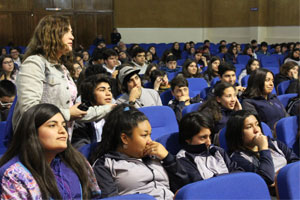 Meanwhile, the PEM Coordinator, Loreto Garrido, stated that the objective of the work “was to reach the more than 970 boys in a different way and for them to get to know themselves, for the students to realize that they do not They are alone in this situation; that this sea of questions is present in all his classmates and peers from other third and fourth grade educational establishments, the difficulty of facing the future after school; “We wanted to reach them in a different way and provide tools to find answers to these thousands of questions that they have every day and do not dare to ask.”
Meanwhile, the PEM Coordinator, Loreto Garrido, stated that the objective of the work “was to reach the more than 970 boys in a different way and for them to get to know themselves, for the students to realize that they do not They are alone in this situation; that this sea of questions is present in all his classmates and peers from other third and fourth grade educational establishments, the difficulty of facing the future after school; “We wanted to reach them in a different way and provide tools to find answers to these thousands of questions that they have every day and do not dare to ask.”
Adding to the previous one, it was sought that the play would investigate the theme of the process of choosing a post-secondary path, accompanied by a conversation that allowed the interaction and exchange of experiences between students of different careers admitted through the Program and students of PACE educational establishments.
The work was carried out by the ECO Theater Company. The director, actress and playwright, Dayan Guerrero, indicated that “as a company we work on demand theater in this way, focusing on the topics that the institutions need. For me it was a challenge since I started writing the work, it is also going back to that time in which each one is full of doubts, problems and it was nice to be able to empathize and put oneself in the other's shoes, this makes the work more organized , fresh and natural. “It has been intensive work, but very rewarding.”
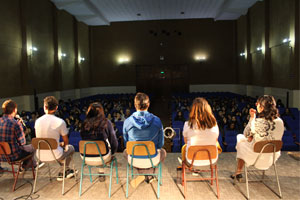 Regarding the work, the Coquimbo Region PACE Coordinator, Jocelyn Burgos, stated that “the experience has been super powerful, being able to participate in what happened here; Without a doubt, the design of this initiative has been very well thought out, I have seen the faces, the emotions of the students who have been deeply identified when seeing themselves reflected on the stage, many of them experienced and empathized with what was happening. Furthermore, this is what the PACE Program seeks, that the children see what is coming for their lives, their future, that they experience what it means to select a university career with conscience.”
Regarding the work, the Coquimbo Region PACE Coordinator, Jocelyn Burgos, stated that “the experience has been super powerful, being able to participate in what happened here; Without a doubt, the design of this initiative has been very well thought out, I have seen the faces, the emotions of the students who have been deeply identified when seeing themselves reflected on the stage, many of them experienced and empathized with what was happening. Furthermore, this is what the PACE Program seeks, that the children see what is coming for their lives, their future, that they experience what it means to select a university career with conscience.”
One of the students present at the activity, Ana González, from the Pedro Pablo Muñoz School in La Higuera, expressed: “I found the visit to the University, the work and the conversation exciting, it motivated me to continue studying. The work was a reflection of the day to day that one lives. Personally, I have the support of my parents, however, they motivated me a lot to continue studying and taught me that we should not give up and follow what we want, perseverance is the key. The PACE Program is great, the professionals get involved with us and support us and I like that students from distant communities are taken into account and the Program helps us emerge and be better people.”
After the presentation of the play, there was a discussion in which the actors, AES PACE ULS students, tutors, among others, participated, who shared their experience in the transition from secondary education to higher education.
Source: Press PACE ULS Accompaniment Program

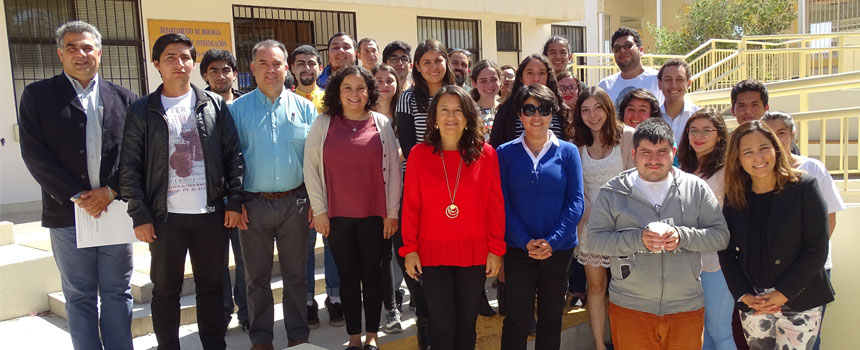
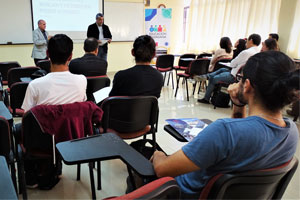 The activity was inaugurated with the words of the Director of the School of Pedagogy in History and Geography, Dr. Sandra Álvarez, who highlighted that "the initiative offered the possibility that academics, students and graduates of the Histogeo ULS Network could be in contact in an academic and pedagogical instance, reflecting on its disciplinary and pedagogical updating in a subject that is already widely displayed in the school curriculum, such as Financial Education”.
The activity was inaugurated with the words of the Director of the School of Pedagogy in History and Geography, Dr. Sandra Álvarez, who highlighted that "the initiative offered the possibility that academics, students and graduates of the Histogeo ULS Network could be in contact in an academic and pedagogical instance, reflecting on its disciplinary and pedagogical updating in a subject that is already widely displayed in the school curriculum, such as Financial Education”.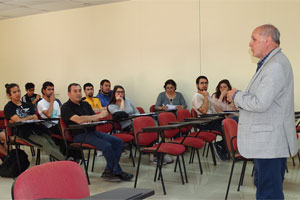 For the Academic Coordinator of the Citizenship Education Program, Mg. Juan Carlos Cura, the activity was relevant since "contents related to financial education have recently been incorporated into the school curriculum and, in addition, it turns out to be an area of strong modernization, which makes it relevant to generate spaces so that they can be recycled and updated. knowledge around this subject. In addition, the new paradigm of Citizen Education has a special concern for forming a financially responsible citizen and moving from financial education to a financial culture that allows us to relate to these concepts and realities in a completely natural way”, concluded the academic.
For the Academic Coordinator of the Citizenship Education Program, Mg. Juan Carlos Cura, the activity was relevant since "contents related to financial education have recently been incorporated into the school curriculum and, in addition, it turns out to be an area of strong modernization, which makes it relevant to generate spaces so that they can be recycled and updated. knowledge around this subject. In addition, the new paradigm of Citizen Education has a special concern for forming a financially responsible citizen and moving from financial education to a financial culture that allows us to relate to these concepts and realities in a completely natural way”, concluded the academic.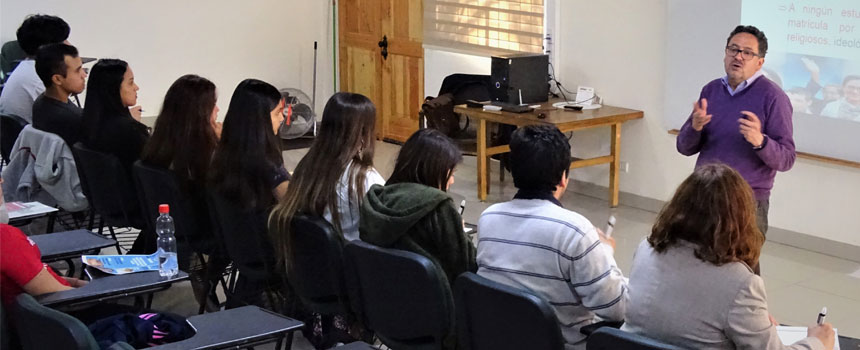
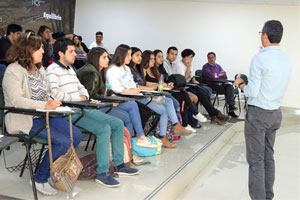 “The significant contribution of Law 20.845 is that it puts the consideration of education as a social right back into the public sphere (…), as of December 31, 2025, establishments that received direct or State subsidy had to become free (…) A gradual deadline was also established for this type of establishment to stop selecting those who enter, a mechanism known as 'La Tómbola' where students apply randomly and may or may not stay in certain establishments. The spirit of the Law is to once again diversify the social composition of the establishments because to a large extent as a country we have one of the most segregating educational systems in the world and that segregation has to do with the social factor of the student. The topic allows us to see in some way this social recomposition of the establishments and, on the other hand, acts under the principle that all people have the same equal opportunities to enter these schools and that they are not necessarily selected based on a test. of admission,” explained the academic.
“The significant contribution of Law 20.845 is that it puts the consideration of education as a social right back into the public sphere (…), as of December 31, 2025, establishments that received direct or State subsidy had to become free (…) A gradual deadline was also established for this type of establishment to stop selecting those who enter, a mechanism known as 'La Tómbola' where students apply randomly and may or may not stay in certain establishments. The spirit of the Law is to once again diversify the social composition of the establishments because to a large extent as a country we have one of the most segregating educational systems in the world and that segregation has to do with the social factor of the student. The topic allows us to see in some way this social recomposition of the establishments and, on the other hand, acts under the principle that all people have the same equal opportunities to enter these schools and that they are not necessarily selected based on a test. of admission,” explained the academic.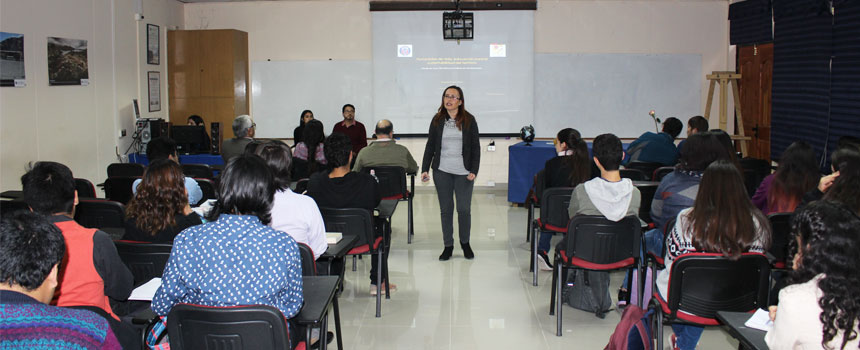
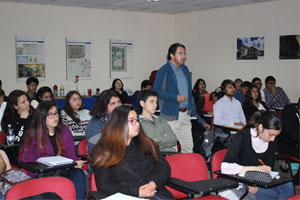 The presentation focused on the case study of the Huentelauquén Wetland Ramsar Site was given by the academic and Coordinator of the Geography Area, Mg. in Geographic Sciences, Marcela Robles; the academic, Mg. in Sciences, Víctor Bravo, and the Lic. in Education, Rubén Castillo, who were part of the multidisciplinary team that developed the study of biodiversity and conservation of the wetland biota, which laid the foundations for Las Salinas de Huentelauquén, with the support of the agricultural community, was declared a Ramsar Site.
The presentation focused on the case study of the Huentelauquén Wetland Ramsar Site was given by the academic and Coordinator of the Geography Area, Mg. in Geographic Sciences, Marcela Robles; the academic, Mg. in Sciences, Víctor Bravo, and the Lic. in Education, Rubén Castillo, who were part of the multidisciplinary team that developed the study of biodiversity and conservation of the wetland biota, which laid the foundations for Las Salinas de Huentelauquén, with the support of the agricultural community, was declared a Ramsar Site.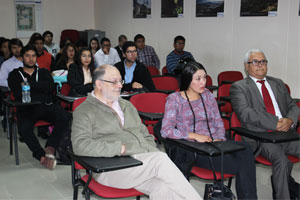 The ULS academic added that at the national level “we already have 14 Ramsar sites and we want to increase the number of protected spaces, because we know that they play such an important role as an ecosystem service. We have a lot of faith in this XNUMXst century education, using and valuing more what we have.”
The ULS academic added that at the national level “we already have 14 Ramsar sites and we want to increase the number of protected spaces, because we know that they play such an important role as an ecosystem service. We have a lot of faith in this XNUMXst century education, using and valuing more what we have.”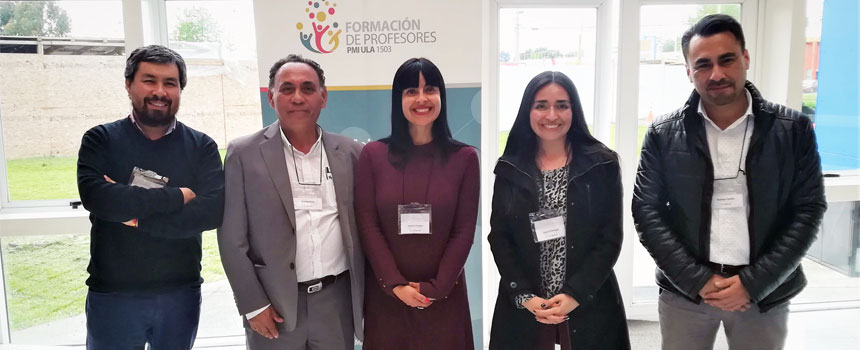
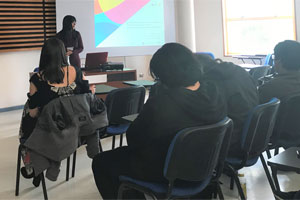 In this context, the researchers from the Integrated Management of Pedagogies Unit (UGIP), Dr. Rodrigo Ruay, Dr. Haylen Perines, Dr. Hugo Tapia and Dr. Laura Espinoza together with the academic from the ULS Department of Education, Rodrigo Castillo, They presented various presentations related to their respective areas of work.
In this context, the researchers from the Integrated Management of Pedagogies Unit (UGIP), Dr. Rodrigo Ruay, Dr. Haylen Perines, Dr. Hugo Tapia and Dr. Laura Espinoza together with the academic from the ULS Department of Education, Rodrigo Castillo, They presented various presentations related to their respective areas of work.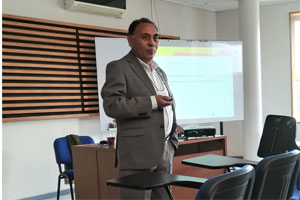 In another area, the work led by Dr. Tapia related to “ICT Subjects in Initial Teacher Training in Chile: a quantitative review” was announced, which is carried out together with Dr. Karla Campaña and Rodrigo Castillo .
In another area, the work led by Dr. Tapia related to “ICT Subjects in Initial Teacher Training in Chile: a quantitative review” was announced, which is carried out together with Dr. Karla Campaña and Rodrigo Castillo .